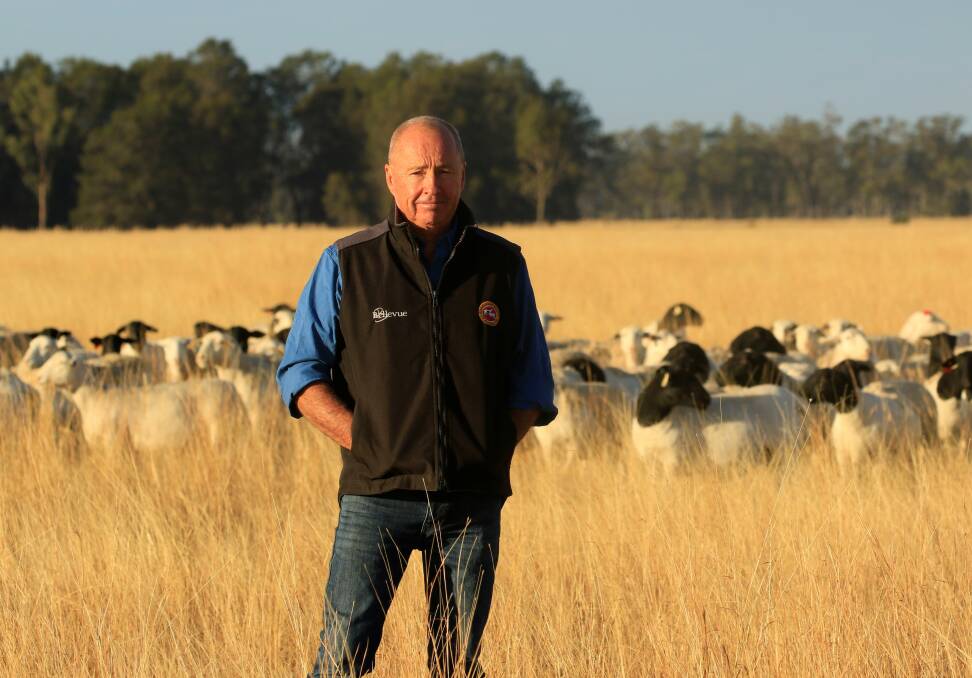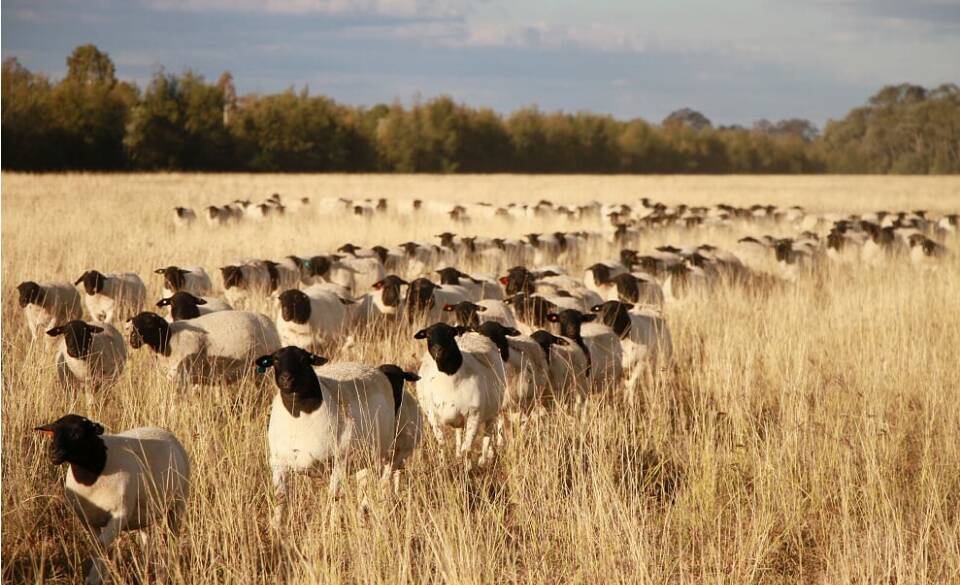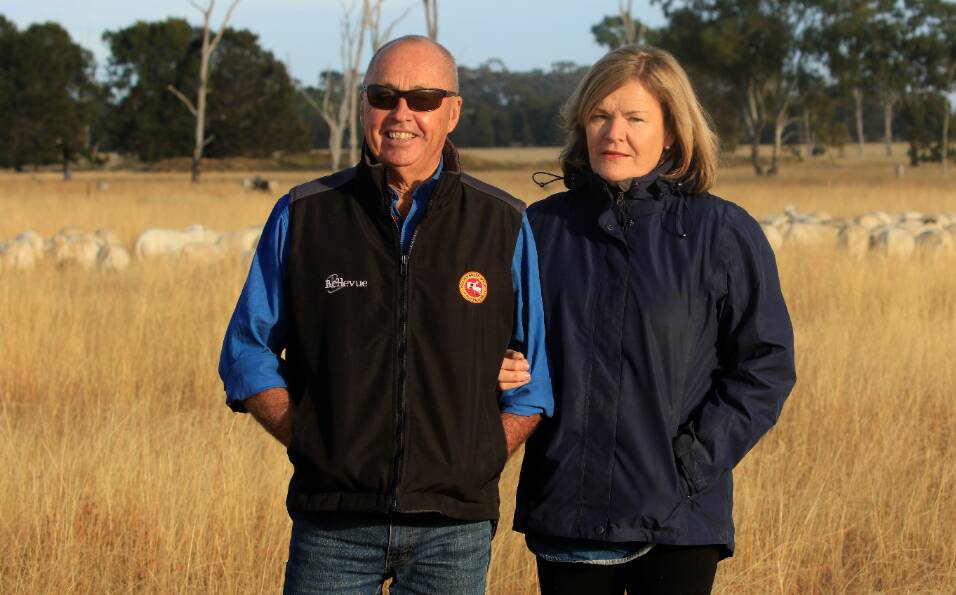Adaptation and change pays dividends

This is advertising content for Bellevue Grazing Company.
SHEEP producers David and Robbie Curtis might well epitomise the quintessential farmers, wedded to the land and the agricultural sector.
But there's nothing old world about this pair, who have been variously described as early adopters, future-proofers and boldly innovative.
The Curtis business, Bellevue Dorper and White Dorper Stud, Millmerran, Queensland, is testimony to a wide-eyed approach to stay the distance.
Bellevue wasn't always home to a flock of 3000 breeding Dorper ewes, whose genetics have been refined time and again over recent years.
"We loved our Merinos, however we understood over 80 per cent of the wool was being processed in China and shearers were getting on in age and becoming harder to hire," Mr Curtis said.

"Besides that, wool was getting a fairly poor return at the time so we changed."
But theirs was not an ill-considered change taken for change's sake - they wanted to stay in business and they wanted to succeed.
Aware of the prevailing environmental conditions in country QLD and the physical constraints of their property, the Curtis's opted for Dorper sheep, a breed originally from South Africa and noted for its hardiness and exceptional meat attributes.
Acquiring genetics from Namibian Dorper and White Dorper breeders Pieter van Schalkwyk and Floors Nell, the Curtis family founded their stud in 2007 and over 13 years Bellevue has risen in reputation and status.
"Our first on-property sale in 2008 launched us and since then we have been constantly monitoring and adapting," he said.
"We utilise Lambplan breeding values and for years we have been collecting data on our livestock.
"We have seen genetic gains in each generation of rams and the Dorpers are a magnificent breed of sheep, hardy and low maintenance and the only thing tougher than them is probably the goat. The ewes continue to fall pregnant, milk and mother, and we have achieved 120pc lambing and weaning rates even in the worst conditions."
The Bellevue business is a mixed agricultural enterprise with a commercial side and stud running independent of one another, as well as cropping. Moreover, the farms are fully organic.

"The health of the farm and the environment is an important aspect of what we do and we believe that transfers to the health of the animals on the property," Mr Curtis said.
"We don't spray chemicals on our cropping country and the overall health of the property has improved.
"Since 1994 we have been planting tree corridors because understanding the benefits of windbreaks and having birds and increased biodiversity on the property, as well as the shade, is vital.
"Our fundamental belief is that where we produce food should be the healthiest place to live."
Also on the rise is the popularity of Bellevue genetics. Clients in the harshness of western QLD are reporting "great lambing percentages" compared with other sheep breeds.
One of Brisbane's prestige butchers cannot get enough Bellevue lamb.
"The Dorper lamb from Bellevue is just outstanding and, in my opinion, it's far superior to anything else on the market," said Billy Gibney, proprietor of Meat at Billy's Ashgrove and Rosalie.
Belleve has been regularly involved in paddock-to-plate service for butchers and participated in hoof-and-hook competitions.
"As commodity producers of all this wonderful food, the proof that we are getting our genetics right and a sense that we are doing things right," Sophie Curtis said.
"Last year we had some lambs in the Ekka. They dressed out beautifully and took first and second place in their class and that result was really good because meat is where Bellevue Dorpers shine.
"We focus on turning off the lambs quickly. We are getting a beautifully finished carcase around 44kg.
"We can invest in double joining, getting those ewes pregnant again and getting lambs on the ground and selling them. By doing this our productivity goes up."
Bellevue's females are joined twice a year with a tight joining cycle of 35 days, which manifests in a condensed lambing period.
"We use our genetics through the commercial flock, so we are breeding an ideal meat carcase and with our data we know what conception rates we are getting, what weight to wean at and what weight they will hang up," Mr Curtis said.
That's innovative and protective of the future.
This is advertising content for Bellevue Grazing Company.


